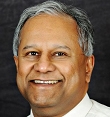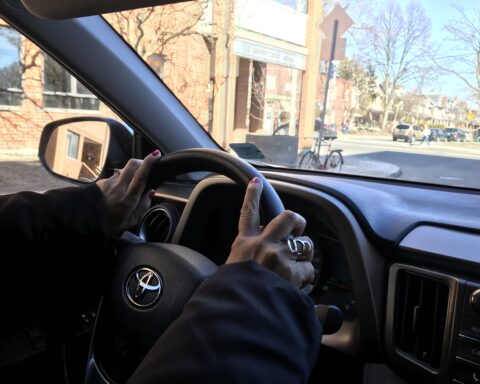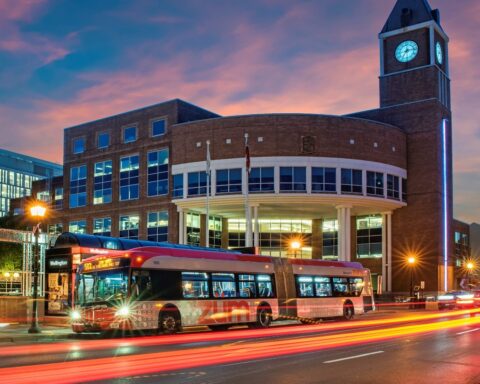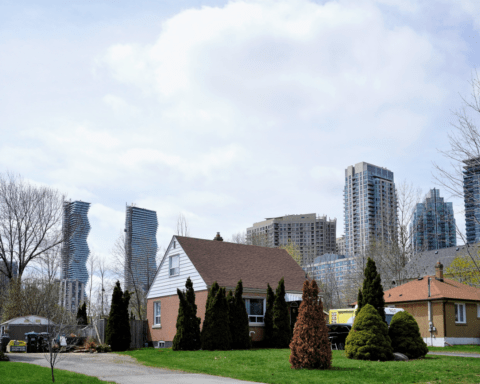With the federal election campaign crossing the midway marker, the theatrics are as predictable as ever, with minor distractions.
Leaders of all the major political parties are staying on message, spouting lines that sound jaded, throwing phantom punches at opponents. This theatre is played out at campaign stops with partisans providing diversity drapes and the mainstream media trying to derail leaders with questions that top the day’s news agenda. There have, of course, been a few sidelights.
While the politicians at least tweak their backdrops and messages to suit the location and the occasion, be it in Ajax or Scarborough, the media unwittingly turns it into vanilla occasions. Their relentless single topic questions are seen as bullying by partisans unaware of the media’s need to feed the 24-hour news cycle.
The reaction of the supporters to the hounding of their leaders, from rants to heckling, then quickly becomes news. The opportunity to use the drawn-out campaign as a sounding board to discuss big ideas in this three-way race has been wasted so far.
The opportunity to use the drawn-out campaign as a sounding board to discuss big ideas in this three-way race has been wasted so far.
Missing election platforms
Moreover, among the four federal parties, only the Greens have spelled out their platform, with the others preferring to wait till the very end as it gives them a chance to fine-tune their pitches.
While native-born Canadians may wish away the 42nd election as a cyclical event as predictable as a cold winter, new Canadians and immigrant groups eager to join the broader debate would be disappointed.
Immigrant voters in Brampton or Mississauga do not see Canada as a settled country drifting along in comfort thanks to its wealth. For them, this country is their new West that could be reshaped a bit by them in the same way as others before them.
The weeks before October 19 was a chance to talk about climate change and the environment, the Senate, electoral reform, national unity, economic equality, international trade, global security and yes, immigration, citizenship and many other issues.
While the Syrian refugee crisis could have been used to introduce and discuss many of the issues outlined above, it has degenerated into an endless one-upmanship and the number of refugees Canada should take in. And while talking of past responses to similar crises, not many mention that Canada does have a complicated history of refugee reception.
Also lost in the debate over ISIS and the raging wars of the Middle East, is the understanding that the genesis of the Syrian crisis can be traced back to a devastating drought linked to climate change. That one of the early warnings was issued by the International Institute for Sustainable Development headquartered here in Canada has been drowned out by the noise.
A glimmer of hope on this count came in the answers both non-Conservative prime ministerial contenders gave to CBC’s Peter Mansbridge as one of the first things they will do in office. The Liberal’s Justin Trudeau and NDP’s Tom Mulcair said they would get ready for the United Nations Climate Change Conference in Paris in late November.
Issue of refugees
But as the battle lines are being drawn around a large intake of refugees, new Canadians may be worrying about its impact on other routes of immigration and their own settlement issues.
The Toronto Star reported that the Conservatives’ perceived hard-line on the refugee crisis seems tailored to the response party candidates say they are getting at the door. One Greater Toronto Area (GTA) candidate, speaking on background, told the Star that, if anything, the party’s approach is “hardening our vote.”
In an interview with the Star, Conservative candidate Bal Gosal (Brampton-Centre), said supporters in his riding “don’t want them. The majority of people don’t want them [Syrian refugees].”
That immigration policy is a key friction area was evident when Jason Kenney, the Minister for Defence and Minister for Multiculturalism, dove into the subject.
MIREMS, an ethnic media monitoring and research firm, said in a blog post that Kenney gave a series of interviews to ethnic media outlets in which he likened the NDP’s immigration proposals to overbooking flights: selling more tickets than seats on a plane.
While to date the NDP hasn’t taken the bait to hit back at the Conservative’s track record on immigration, MIREMS said many ethnic media outlets commented on Kenney’s defence of his party on this file starting a “war of words” with Liberal immigration lead John McCallum*. It said the Urdu Post quoted McCallum as saying that Kenney owes apologies to Canadians for the damage he has done by “dropping 300,000 applicants for permanent residence into the Pacific Ocean [and] throwing 50,000 investor class applications in the garbage bin.”
A mainstream opinion piece, too, expressed concern over the NDP’s “hidden immigration pledge.” The writer saw Mulcair’s assurance to a group of South Asians in Surrey (B.C.) on family reunification for children and grandparents as ‘dog-whistle’ (understood only by the intended audience) politics.
This frame of reference could also be used against Conservative Leader Stephen Harper when, during a campaign stop in Markham, Ont., he made an announcement aimed at helping new Canadians get their foreign credentials recognized so they can find work in their chosen professions.
Aiming at the same immigrant audience of the Greater Toronto Area, Trudeau told the Jalsa Salana Islamic conference in Mississauga, Ont. that a Liberal government will repeal the newly legislated “two-tier” citizenship law and would do more to help free imprisoned Egyptian-Canadian journalist Mohamed Fahmy.
Optics of inclusion
Call these pronouncement what you may, new Canadians and visible minorities can expect to hear more such stump speeches interspersed with sound bites only for their ears.
That’s because in a tight race their support is significant in both magnitude and scope. In 110 of the country’s 338 ridings, they make up 20 per cent or more of the population, up from 90 in 2011.
However, this factor is not fully reflected in the number of visible minority candidates nominated by the three major parties. Just over 13 per cent of them so far are from these minority groups, although they now account for around 20 per cent of the Canadian population.
With around 50 nominations still to be filled, and at least two of the drop outs being minority candidates, their number is around 130 out of the over 960 nominated.
Interestingly, half of the 338 ridings don’t have any visible minority candidates from the three major parties. However, in eight hyper-diverse ridings, they dominate the field and are fighting against each other.
Half of the 338 ridings don’t have any visible minority candidates from the three major parties.
While this strategic placement of visible minority candidates in only the most diverse ridings may be seen as good optics, it lulls us into thinking that our politics is inclusive. Elizabeth Goodyear-Grant and Erin Tolley, both professors of political science, say this effectively caps the number of seats that visible minority candidates might ever win.
In the 2011 federal election, 42 foreign-born citizens were elected as MPs. While that was about 13 per cent of the then-308-member House of Commons, it is unlikely that the current crop of candidates can breach that number because only around 13 per cent of those nominated so far are visible minorities. With 24 of them fighting each other in three-way tussles, the only consolation is that at least eight are sure to become MPs.
And that’s the only safe prediction one can make about #elxn42 at half time.
* This report has been revised to make it clear that the quote attributed to John McCallum was quoted by the Urdu Post and not MIREMS.
Ranjit is a Toronto-based writer with interest in Canadian civic affairs, immigration, the environment and motoring. Maytree and Al Jazzera English alumnus.





